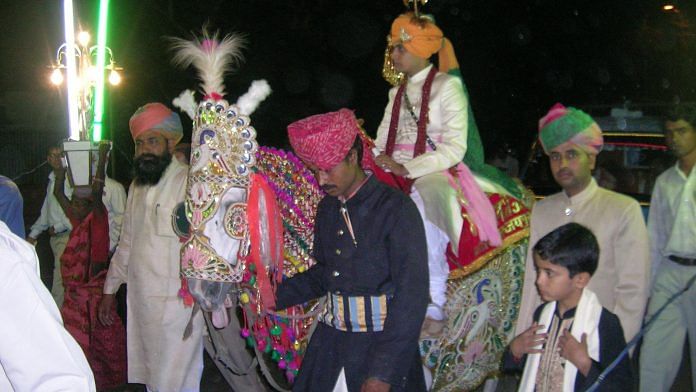New Delhi: Riding horses for weddings in Delhi may now be risky.
According to a report by the National Research Centre on Equines (NREC) in Hisar, Haryana, several horses in two localities in Delhi — Mongolpuri and Neb Sarai — have tested positive for Glanders, a fatal equine disease that spreads from animals to humans.
The symptoms of Glanders in human beings are fever with sweating, muscle ache, chest pain, headache and nasal discharge, among others, according to the Centres for Disease Control and Prevention (CDC).
Without treatment with specific antibiotics, nine of every 10 people who get Glanders die, it said. When people with Glanders get treatment with the correct antibiotics, upto 5 of 10 people die. People who have had Glanders are required to take antibiotics for several months to make sure the disease doesn’t come back.
The NREC report, which was submitted to Delhi’s animal husbandry department on 7 May, said eight out of 18 serum samples collected by it tested positive for Glanders, a disease that also affects mules, donkeys, among other animals.
“In light of this result, it is recommended that equine movement to and from these and adjoining areas should be brought under strict regulation,” the report said.
“Considering that this is a notifiable disease, necessary precautions and zoo-sanitary measures to prevent the spread of the disease need top priority,” it added.
A senior NREC official said: “A lot of these horses are used during marriage ceremonies, and can transmit the infection into human beings.”
The official added the disease is “highly communicable” and there’s “no cure for it”. The outbreak of Glanders could happen almost every year in the national capital, he added.
“…the horses continue to be kept in abysmal conditions, which become breeding ground for infection,” he said.
‘Unwary public most unfortunate victims of glanders’
Caused by the bacterium Burkholderia mallei, Glanders can be contracted by consuming contaminated food or water.
Last year, Delhi was notified as a controlled area and the government put a ban on the movement of horses, mules, and donkeys in and out of the city after as many as 40 horses were diagnosed with Glanders.
“The population of horses kept in Delhi is neither registered nor (are they) screened regularly, and their indiscriminate use/abuse for commercial purposes as well as inter-state transport is rampant,” wrote animal rights activist Gauri Maulekhi in a letter sent to Delhi Chief Secretary Vijay Kumar Dev Tuesday.
“This only adds up to the spread of the disease and the most unfortunate victims could be the unwary public ignorant to the severe health consequences associated with Glanders,” she added.
Underscoring the need to make the public aware of the possible outbreak of Glanders, Maulekhi further said, “The 18 samples collected from Mongolpuri and Neb Sarai are from horses most commonly used for baraats. The public must be immediately and urgently made aware of the risk of contracting incurable diseases from such use of horses.”
Also read: Vijay Mallya’s stud farm in Karnataka is selling horses to stay afloat



